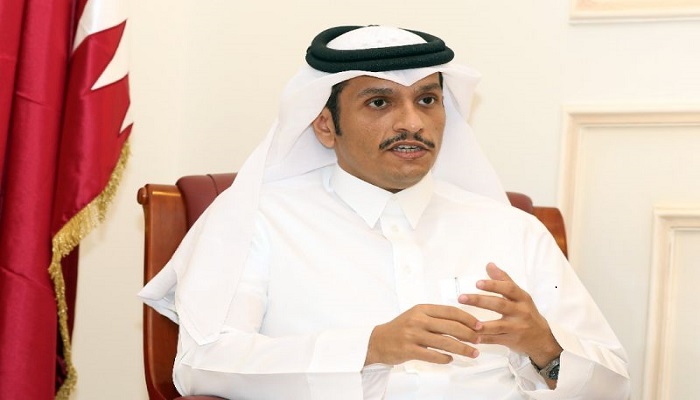
Qatar said Thursday it will not “surrender” and rejected any interference in its foreign policy, defying its Gulf neighbours in an escalating dispute over its alleged support for extremists.
Saudi Arabia, the United Arab Emirates (UAE), Bahrain and Egypt severed relations with the small Gulf Arab state on Monday, accusing it of supporting Islamist militants and their arch-adversary Iran – charges Qatar calls baseless.
Several other countries later followed suit.
Would-be mediators including U.S. President Donald Trump and Kuwait’s ruling emir have struggled to ease a crisis that Qataris say has led to a blockade of their nation.
Foreign Minister Sheikh Mohammed bin Abdulrahman al-Thani said Qatar had not yet been presented with a list of demands by countries that cut off diplomatic and transport ties, but insisted the matter be solved peacefully.
“We have been isolated because we are successful and progressive. We are a platform for peace,” he told reporters in Doha in a defiant tone.
“We are not ready to surrender, and will never be ready to surrender, the independence of our foreign policy,” he said, warning that the dispute threatened the stability of the region.
Saudi Arabia’s closure of Qatar’s only land border sparked fears of major price hikes and food shortages for its population of 2.7 million people, with long queues forming as some supermarkets began running out of stock.
With supply chains disrupted and anxiety mounting about deepening economic turbulence, banks and firms in Gulf Arab states were trying to keep business links to Qatar open and avoid a costly firesale of assets.
“We’re not worried about a food shortage, we’re fine. We can live forever like this, we are well prepared,” Sheikh Mohammed said.
He said Iran was ready to help with securing food supplies in the emirate, an investment powerhouse and supplier of natural gas to world markets but tiny and reliant on imports.
Turkey has meanwhile brought forward a planned troop deployment to Qatar and pledged to provide food and water supplies to its Arab ally, which hosts a Turkish military base.
A senior UAE official accused Qatar of escalating the row by seeking help from Turkey and Iran.
A top Gulf official, speaking on condition of anonymity, told AFP a major concern was the influence of Sheikh Tamim’s father, Sheikh Hamad, who had allowed the Taliban to open an office in Doha and helped arm Syrian rebels before abdicating in 2013.
“The previous emir is a big supporter of this whole extremist agenda, so we do have an issue,” the official said.
Doha has for years forged its own alliances in the region, often diverging from the politics of the six-state GCC and taking in leaders of the Muslim Brotherhood, the Palestinian Hamas and members of the Afghan Taliban.
A senior Emirati official told AFP this week’s decision was not aimed at a change of regime in Qatar but to pressure the country to reshape its policy.
“This is a foreign policy that has gone wild,” state minister for foreign affairs Anwar Gargash told AFP. “We need to put everything in check.”
Gargash said the four Arab states seek a “political commitment to change course” by Qatar, including ending its support for the Brotherhood and Hamas.
Bahrain on Thursday followed the UAE in announcing that expressing sympathy for Qatar over the sanctions was an offence punishable by jail.

Post Your Comments